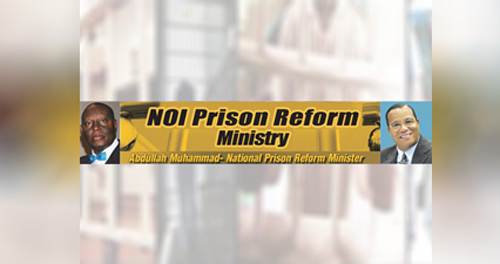by Gregory Muhammad
Prison is the darkest place on our planet. It is also the loneliest in terms of being separated from family members and friends.
- Prisoners have a saying when faced with “prison injustice,” it goes, “out of sight, out of mind.”
- Who cares about prisoners? They are there because of committing a crime on others.
- This is a saying among most people who have never served time in a prison.
- When a person is convicted in a court of law and sentenced this is the “punishment.”
- There is no additional punishment after sentencing.
- All prisoners are to be treated humanely while serving their sentences.
What is the impact of Covid-19 on prisoners? Looking at the impact within the Pennsylvania Prison System, a Pennsylvania Prison Society report states, “Since our last update in mid-December, the virus has killed 21 more incarcerated Pennsylvanians and one correctional employee.
The report goes on to say, “As of today, (January 10, 2021) a total of 76 people in custody and 6 staff members have died from the virus in Pennsylvania jails and prisons.”
On December 31, 2020, the Philadelphia Inquirer reported an outbreak at State Correctional Institution Dallas, Pennsylvania, that infected more than a thousand, killing 9. It was reported by Samantha Melamed. She wrote, “More than 900 men at the State Correctional Institution Dallas now have COVID-19, a state Department of Corrections spokesperson said this week.
Another 246 have recovered and nine have died in the past few months, making for one of the largest and deadliest coronavirus outbreaks in the state prison system—which has confirmed 6,499 cases among prisoners and 2,436 among staff, even without universal testing, since the pandemic began.
People locked up in the prison, which houses about 1,900 men, said the coronavirus had penetrated virtually every cell block, spilling over into a makeshift field hospital in the gym and onto the restricted-housing unit, which is normally used for punitive isolation. The Department of Corrections did not immediately respond to request for an interview or detailed information on mitigation efforts there.”
This writer has been involved with Mumia Abu-Jamal rallies in Philadelphia and has had interactions with one of his civil attorneys, Bret Grote of the Abolitionist Law Center. He stated in that same article, “One concern I would have for SCI-Dallas being at greater risk for a high prevalence of COVID-19 transmission is the age of the facility and some of the architectural features.
They have bars on the windows (instead of glass).” According to writer Melamed, “but he also noted that Dallas is one of a handful of state prisons in Pennsylvania where all prisoners have been tested. He stated, ‘Everywhere you do mass testing, you’re not coming up with those numbers necessarily, but you’re still finding hundreds of cases that were going undetected.’ ”
The writer of this Philadelphia Inquirer article shares a statement from prisoner Thomas Greene, 51, saying that he began reporting Covid-19 symptoms, including cough, fever and a loss of smell and taste, starting in October. It was several days before he was isolated from other prisoners.
The Honorable Minister Louis Farrakhan announced during his July 4, 2020 address “The Criterion,” “Don’t take their vaccine.” This writer received a letter from a prisoner at one of the Pennsylvania Prisons that stated: “I will not let them vaccinate me.”
This is a prisoner talking. Many prisoners will not take the vaccine.
The long-term prisoners in Pennsylvania who have been incarcerated for decades are aware of “Dr. Albert M. Kligman, architect of the prison’s (Holmesburg) experimental research program.” (It is recounted in the book Acres of Skin by Allen M. Hornblum.)
In the introduction to “Acres of Skin,” Hornblum writes, “The story centers on Holmesburg Prison—the largest of Philadelphia’s county jails—which became the epicenter of troubling research.” This gives prisoners reason enough to not “take the vaccine.” Of course, those prisoners who refuse to take the vaccine may be facing “forceable isolation” in a unit that is used for punishment, popularly known by prisoners as the “hole.”
In the Philadelphia Inquirer article, writer Melamed, said that prisoner Greene, “described it (the hole) as psychological torture, exposed to round-the-clock noise and fluorescent light, and denied access to his belongings—even his reading glasses.”
Family and friends of prisoners must closely monitor their love ones during the duration of this pandemic.
According to Prison Policy Initiative: “By any reasonable standard, incarcerated people should rank high on every state’s priority list. The Covid-19 case rate is four times higher in state and federal prisons than in the general population—and twice as deadly. And despite the danger of close quarters and high rates of preexisting health conditions among incarcerated people, prisons and jails have widely failed to reduce their populations enough to prevent the spread of the virus.”
This writer believes the prisoners who have “preexisting health conditions,” should be released. Family and friends of the incarcerated should demand these releases.
Let us pray for the well being and safety of our incarcerated family as this coronavirus pandemic worsens.
Gregory Muhammad is Student Regional Prison Reform Minister for the NOI Prison Reform Ministry Delaware Valley Region.













